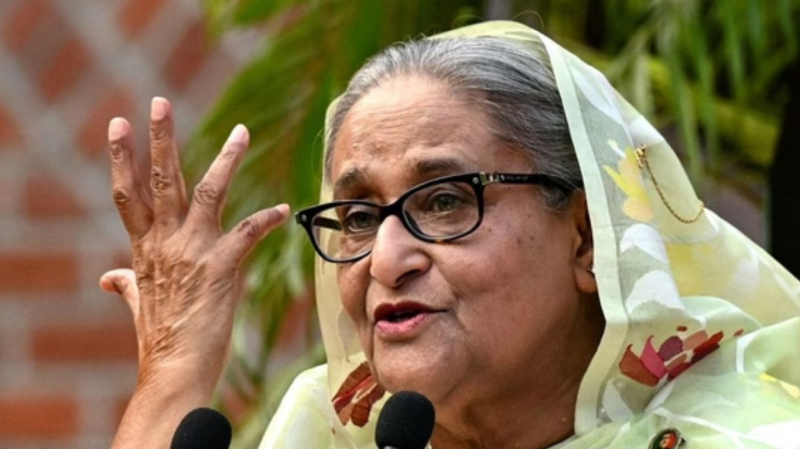- Puppet show enchants Children as Boi Mela comes alive on day 2 |
- DSCC Admin Salam’s drive to make South Dhaka a ‘clean city’ |
- 274 Taliban Dead, 55 Pakistan Troops Killed |
- Now 'open war' with Afghanistan after latest strikes |
- Dhaka's air quality fourth worst in world on Friday morning |
‘Shoot Them’: Sheikh Hasina Ordered Firing on Protesters in 2024

Secret phone recordings reveal that former Prime Minister Sheikh Hasina ordered security forces to use lethal weapons against student protesters in 2024. The recordings, accessed by Al Jazeera and verified by audio forensic experts, include Hasina instructing her forces to “shoot wherever they find them.”
Sheikh Hasina, who ruled Bangladesh for 15 years, resigned and fled to India on 5 August following weeks of violent protests in which nearly 1,400 people were killed and more than 20,000 injured, according to the International Criminal Tribunal (ICT) of Bangladesh.
In a call dated 18 July, recorded by the National Telecommunications Monitoring Centre (NTMC), Hasina told an ally that she had given an open order to use lethal force. “My instructions have already been given. Now they will use lethal weapons, shoot wherever they find them,” she said, adding she had delayed this to protect students’ safety.
In another conversation with Dhaka South mayor and relative Sheikh Fazle Noor Taposh, Hasina discussed using helicopters to control the protests, a claim denied by security forces but supported by eyewitness accounts of helicopter gunfire causing unusual bullet wounds to protesters.
The recordings may be submitted as evidence in the ongoing ICT trial, where Hasina, her ministers, and security officials face charges of crimes against humanity. The trial is set to begin in August following indictments on 10 July.
The NTMC, part of Hasina’s surveillance network, recorded these calls and has faced criticism for spying on political figures, including Hasina’s allies.
Tajul Islam, chief prosecutor for the ICT, stated Hasina was aware of the surveillance. “She has dug a very deep ditch for others. Now she’s in the ditch,” he said.
The student protests began peacefully in June 2024 after the reinstatement of a controversial quota system favoring families of war veterans for state jobs. This sparked outrage over perceived unfairness and political favoritism.
The killing of student protester Abu Sayed by police on 16 July in Rangpur intensified nationwide protests. Secret calls captured Hasina’s economic adviser, Salman F Rahman, pressing police about delays and alterations in Sayed’s postmortem report, which doctors say was manipulated to hide multiple bullet wounds.
Sayed’s family was later compelled to attend a televised event with Hasina, where compensation was handed out amid claims of coercion. Sayed’s sister publicly challenged the government’s version of events, pointing to police responsibility for his death.
An Awami League spokesperson denied Hasina ever authorised lethal force, dismissing the recordings as “cherry-picked” or doctored and asserting the government’s investigation into Abu Sayed’s death was sincere.

